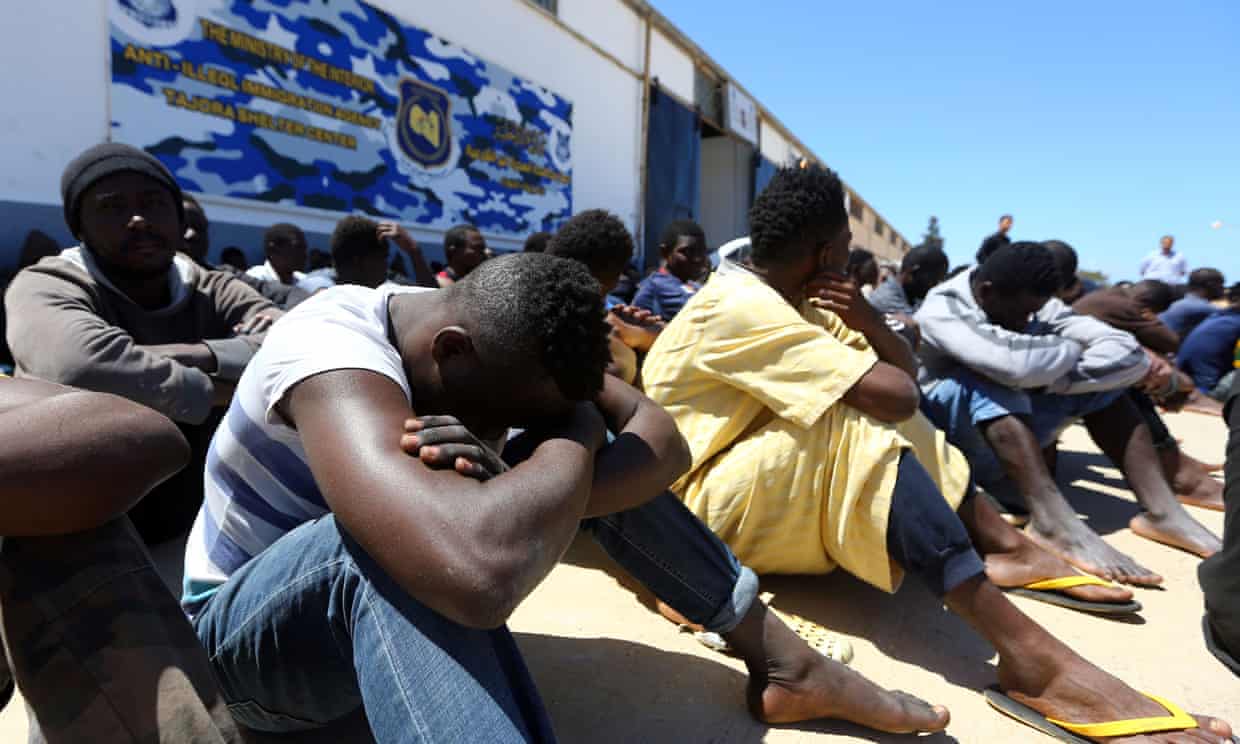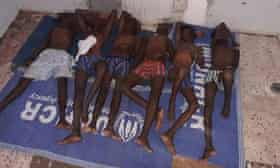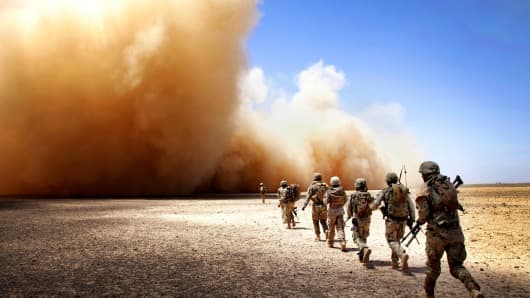Bahlbi Y. MalkCanadian Partnership for Reconstruction and Development (CPRD)
Source: Carnegie Council, March 12, 2018
Dictators are not all the same. They use different tools of repression and survival. ‘Divide and rule,’ however, is one of the oldest, most widely used, and most effective of their strategies. It involves creating, maintaining, and even enforcing divisions, distrust, and enmity among ethnic, religious, regional, and socio-political groups. This helps ensure that no unified movement can coalesce to overthrow a dictatorial regime. From Siad Barre of Somalia to Juvenal Habryimana of Rwanda, Mobutu Sese Seko of Zaire, and many others, the African continent is not short of examples of dictators who have obtained and/or retained power through these divisive tactics.
One aspect of divide and rule is that most dictators retain some domestic support by offering privileges to members of their own ethnic or religious groups in return for their political support, while systematically excluding others.1 In this regard, Eritrea’s president, the dictator Isaias Afwerki, appears to be an anomaly. Isaias2 is highly unpopular throughout Eritrea, including among Tigrignas, his own ethnic group, which is widely spread across several regions. He is believed to have not even favored his immediate family or his ancestral village. In fact, his relationship to Tsolot village in Hamasien doesn’t go beyond his grandfather, who arrived there from Tigray in Ethiopia. He is thus unlikely to seek kinship and lineage-based support from his village, as did Mobutu of Zaire and other African dictators. He has already depleted most of the political capital and national support he earned during the struggle for independence from Ethiopia and is thus reduced to recycling propaganda images of pre-independence military might, discipline, and obedience to mask his current unpopularity and weakness. The state-controlled media produces a constant barrage of misinformation campaigns and lies to hide the truth, regardless how transparent the lies might be.
Instead of rallying public support, Isaias employs coercion, imprisonment, torture, intimidation, and killing to secure obedience, while simultaneously pursuing divide-and-rule strategies. For instance, his party the PFDJ (People’s Front for Democracy and Justice), which is the sole legal political party in Eritrea, has pitted the three highly populated highland regions (Hamasien, Seraye, Akeleguzay), which are predominantly Christian and of Tigrigna ethnicity, against one another by instilling mistrust among them, which I believe has greatly hindered the emergence of an organized opposition against their common enemy. Indeed, his regime, which has been in power since 1993, has not faced any serious threats of collective opposition, apart from the January 2013 mutiny, which was easily foiled. The public protests that took place from late October to early November 2017 against the government’s decision to remove a Quranic class and dress code at a community-funded religious school (Al-Diaa Islamic School) was another rare incident, but it has apparently spooked the dictator into hiding.3
In addition, the top religious leaders in the country, including the mufti of the Eritrean Islamic communities and the Orthodox Christian patriarch, were handpicked and appointed by Isaias. By doing so, he has undermined the institutions’ influence and disconnected the religious leaders from the general public, while delegitimizing them in the eyes of their followers. For example, in 2004, the Holy Synod and representatives of all dioceses jointly elected Abune Antonios, former bishop Antonios of Hamasien, as the third patriarch of the Eritrean Orthodox Church. After the patriarch’s call for the release of political prisoners and his refusal to ‘excommunicate the 3,000 parishioners who opposed the government’ in 2007, he was detained and Isaias replaced him with Bishop Dioscoros of Mendefera.4 As a result, Orthodox Church supporters are divided into two antagonistic groups: those for and against the unlawfully appointed patriarch.
Isaias also manipulates the population by cultivating common fears that unite them, under the guise of national security. For example, Ethiopia’s refusal to implement the Ethio-Eritrea Boundary Commission’s (EEBC) final and binding agreement with respect to the 1998-2000-border conflict and the subsequent failure of the international community to enforce the provision has legitimatized the claim of an external threat. This has catalyzed some popular mobilization, primarily among those who live far from Isaias’s oppression: the diaspora. While those living in Eritrea are gravely threatened by the deteriorating socio-economic and political situation within the country, the diaspora-based supporters of the regime are more concerned with Ethiopia’s threat to Eritrean sovereignty. Many Eritreans view Ethiopia as a historical enemy, and the occupation of Eritrean land in violation of the agreement fulfills the public’s expectations about the ‘external enemy threat.’ This issue has been blown out of proportion, but nevertheless it has provided Isaias with a perfect pretext to use an ‘external threat’ to distract from the internal threat of the state’s aggression towards its own citizens and to blame internal incompetence, failures, domestic stagnation, and insecurity on external enemies.
Furthermore, Isaias has mischaracterized and criminalized domestic opposition to his regime as an ‘Islamic movement’ and as ‘terrorists’ to convince the public that they are better off with him. Although most Eritreans are aware of PFDJ’s political games, it is hard to downplay their impact on the public’s perceptions and behavior. They produce a toxic brew of distrust which risks turning the country into a Muslim versus Christian battleground, even though this is a society long known for its harmonious coexistence.
Controlling the Army and Constant Shuffling of Officials
Isaias knows well that, in Africa, he who controls the army controls the presidency. Therefore, because he doesn’t have full control of the army, he has made sure that none of his senior military officials do either. For example, former minister of defense General Sebhat Efrem, who was supposed to control the military chain of command and oversee subordinates of the army and their activities, wasn’t even allowed to deliver a commencement speech at Sawa (the military and education boot camp for young Eritreans), much less pass military orders. It is always Isaias who issues orders. He has divided the country into five military operation zones (Gash-Barka (Zone 1); West (Zone 2); South (Zone 3); East (Zone 4); and Centre, including Asmara (Zone 5) and six administrative regions (Maekel/Central, Anseba, Gash-Barka, Debub/Southern, Northern Red Sea and Southern Red Sea). Each zone and administrative region is controlled by army generals who report directly to the president, not to the minister of defense.
Thus, Isaias personally oversees the command and control military structures. Now that Sebhat Efrem has been rotated to the Ministry of Energy and Mines, leaving the post of Ministry of Defense empty, Isaias doesn’t have to even pretend that the minister of defense runs the Ministry. The regional civilian administrators operate under the shadow of the military commanders and to make sure that these army leaders remain disoriented, detached from any military unit, and unable to develop independent political base and entourage, Isaias constantly rotates, shuffles, reshuffles, purges, and then rehabilitates them. This practice of abruptly promoting unknown minions to the top and demoting senior officials to the bottom is one of Isaias’s favorite political techniques. He assigns them to fields and sectors they know nothing about and removes them so frequently they don’t have time to learn anything about their new responsibilities. This is because their role is not to implement policies that benefit the public, but rather to do what is good for the dictator. After all, competent ministers are potential rivals, and thus potentially dangerous for a dictator. Only Major General Filipos Weldeyohannes, former commander of Eritrea’s Operation Zone 2 and current chief of staff of the Eritrean Defense Forces, appears to have had relatively stable responsibilities even when his titles change. Known for his corruption, cold-blooded cruelty and despotic personality, he is by far one of the most hated military leaders among the national service conscripts. In the event of Isaias’s death, however, he would probably be the only army general with some degree of military infrastructure and operational command in place to assume power.
The precariousness of tenure and frequency of rotation has created despondent kleptocrats, a fragmented chain of command, and unstable power structures in both the army and the civilian administrations. Even those at the top of the military hierarchy are believed to be “collectively dissatisfied with Isaias’s regime but continue propping it up for two reasons. First, they are profiting handsomely from smuggling food, fuel, and other consumer goods into Eritrea [and smuggling people out of Eritrea], a practice Isaias allows to buy the generals’ loyalty.”5 Second, in his attempt to break up any potential coalition within the army leadership, Isaias has created animosity and rivalry among the senior officials. As a result, “these personal rivalries run so deep that any single general attempting to overthrow Isaias would be immediately contested by the other four, in an attempt to save their positions, fortune and possibly their lives.”6
Yet even though these top-level military officials don’t enjoy a close relationship with the president or with one another, they are all veterans of the war of independence, with deep historical, political, personal, philosophical, and institutional ties that bind them together. The notion of handing power over to people from outside their circle is viewed as a common threat to their survival and legacy. Generally, the state is controlled and run for the benefit of small mediocre and kleptocratic groups who have little or no integrity or competency. The requirements for senior government jobs, including diplomatic posts, are not merit-based but largely loyalty-driven. Even then, diplomats must either be married with a family and/or have parents and siblings in Eritrea as potential hostages in case they attempt to desert the regime. Even if they do flee the regime, many of them remain silent about the crimes their government has committed. Within the country, these handpicked sycophants spend most, if not all their time, running their personal businesses for their own enrichment. Each of them has the power to exploit and abuse the population they control and each kleptocrat in charge of part of the civilian administration attempts to impress Isaias by creating his or her own rules of exploitation. In some instances, they appear to try and outdo one another, with a kleptocrat in one region trying to be more aggressive than others on individual issues. This asymmetrical level of exploitation can mean that each region feels hard done by relative to others on some issues. For instance, in 2005, Mustafa Nurhussein, then administrator of Zoba Debub (Southern highland region) introduced an unwritten policy of punishing the parents of children who evaded and/or deserted the army by forcing them to pay 50,000 Nakfa (3,300 US dollars at the official exchange rate at the time) per child or face prison time. Other kleptocrats have also employed relatively different but equally oppressive tools to exploit their subjects. The bottom line is that each region has been subjected to abuse, albeit in different ways and to different degrees. Perhaps partly because of these differences between regions, they have been unable to collectively challenge the regime. This difficulty has been compounded by the denial of basic rights, including rights of freedom of expression, association, and peaceful assembly, which would let citizens discuss and compare their grievances, learn of their shared misery, and potentially collaborate with each other to revolt against oppression.
Better the Devil You Know than the Angel You Don’t
These top officials have access to socio-economic and material benefits denied to the rest of the population, and this has ensnared them in a web of corruption, rivalry, and crimes. Thus their survival depends on their loyalty to Isaias and silence about his crimes, and they are subject to his command, whether to satisfy his ego or to meet military and political needs. For those top officials, it is a case of ‘better the devil you know than the angel you don’t.’ Despite his abuse, they think they are better off under him than under an unknown alternative leadership.
Isaias has given power, privileges, and impunity to former EPLF (Eritrean People’s Liberation Front) freedom fighters, many of whom are now military commanders. These Teghadelti (freedom fighters) have dominated the country’s socio-economic, military, and political life since 1991. But the dictator needs to prevent top military officials from establishing a political base in the army, where national-service conscripts are in the majority. Thus, in addition to frequent position rotations, he has created a master-slave and “us-versus-them” relationship between the rich and powerful former freedom fighters in top military positions and the conscripts, Warsay, who have remained at the bottom of the social, economic, and political hierarchy. These hapless conscripts are used as a source of free labor for high-ranking army officers to build private homes, perform agricultural labor and other work outside the scope of their normal national service duties. This master-slave relationship, along with the indefinite length of military service, the cruel, inhuman and degrading treatment of conscripts, and extrajudicial killings, as well as rampant sexual violence by senior military commanders against women conscripts have produced a hatred of PFDJ military leaders in particular and of former freedom fighters in general. This divide-and-rule tactic could backfire, however, as the conscripts’ grievances mean that Isaias cannot rely on the army if there were an uprising.
Although there are numerous opposition parties outside Eritrea, they have all repeatedly failed to take advantage of Isaias’s weakness because of their own weaknesses and disunity, born as much of personal rivalries as from ideological debates. As the regime has denied the opposition a political space within Eritrea, they have remained outside the country and have been unable to catalyze any structural change within the country. However, it’s clear that the Eritrean army is not happy; this is Isaias’s Achilles heel. The dissidents are more likely to find willing collaborators within the army for an alliance to facilitate the inevitable collapse of the status quo. It is not farfetched to claim that the military represents all of Eritrean society. Since all men and women between the ages of 18 and 60+ have been forcibly conscripted into the army (although in general, men remain in service the longest), the Eritrean military is filled with multi-generational military families from all walks of life, with diverse ethnic and religious backgrounds.
Looking Back and Looking Forward
Isaias is 72 years old and has no designated successor. What will happen when his regime comes to an end? Is there the likelihood of a coup d’etat, either before or after his death? Clearly, one of the most potentially explosive issues in the immediate post-Isaias period will be the future of the former freedom fighters, whose wealth, power, and security depend on the current regime. Since the rich army generals have a lot to lose from a coup and are closely watched by Isaias, a revolt is more likely to come from mid-ranking colonels who are far from the dictator’s radar screen but close enough to their troops and the civilian population to rally support and mobilize resources. If a coup occurs, these are the gatekeepers who will hold the key to either relinquishing power to democratically elected leaders or remaining in power for their own benefit, which could reduce the country to chaos. Post-dictatorial experiences have shown that ending years of dictatorship and dealing with transitional political situations pose complex socio-political, economic, legal, and practical challenges. Therefore, it is not uncommon in post-dictatorial situations to hear people say, ‘we were better off under Saddam Hussein… we were better off under Siad Barre…’ etc. It is not that people prefer dictatorships, but in these instances, they are voicing their nostalgia for the previous orderly oppression compared with the turmoil that took its place.
The prolonged existence of a dictatorship not only breaks societal institutions but also leads to radicalization of the political opposition, who become obsessed with punishing a deposed force, which could thwart the ultimate objective of achieving peace, reconciliation, stability, and democracy. While the end goal is to abolish an authoritarian regime, prosecute the main culprits, and transition the nation from temporary military rule to a permanent democracy, the mid-ranked former EPLF fighters should receive minimum threats from the incoming leaders so as they can be and should be turned into strategic allies in the abolition of the authoritarian regime, the creation of a peaceful transition, and restoration of institutions.
Although Eritrea is socio-culturally, linguistically, ethnically, and religiously heterogeneous, the population has been peaceful, harmonious, and cohesive for generations. But that generations-old peaceful coexistence should not be mistaken for homogeneity of demands, beliefs, and grievances. If divide and rule could reduce an ethnically, religiously and linguistically homogeneous country like Somalia to anarchy, heterogeneous societies like Eritrea have even more reasons to be cautious. Therefore, the toxic legacy of divide and rule can only be countered and defused through effective mobilization and collective action, fostering a process of inclusion, cooperation, and depolarization as well as the initiation of reparative measures, and the restoration and/or reconstruction of institutions, all within the normative framework of peace, reconciliation, national unity, justice, fundamental human rights, and rule of law.
NOTES
The views expressed in this publication are solely those of the author and do not necessarily represent those of the organization to which he is affiliated.
1 De Mesquita, B. and Smith, A. (2012). The Dictator’s Handbook: Why Bad Behavior is Almost Always Good Politics. PublicAffairs, New York. See also, Wintrobe, R. (2001). “How to understand, and deal with dictatorship: an economist’s view.” Vol,2. Issue.1, Springer-Verlag Berlin Heidelberg. https://doi.org/10.1007/s10101-001-8001-x
2 Eritreans are known by their first names, so from here on Isaias Afwerki is referred to as Isaias.
3 When the protest erupted, Isaias apparently got in his helicopter and flew to an unknown location. Although it has always been difficult to verify information in a country where free press is absolutely forbidden, this information was broadcasted by Eri-medrek, a radio that is run and funded by former high officials in exile with deep connection with many people in power. See EriMedrek, November 10, 2017, Radio Program-Tigrigna. https://www.youtube.com/watch?v=UXcZC19IIiI
4 United States Commission on International Religious Freedom (—-). ‘Patriarch Abune Antonios’ http://www.uscirf.gov/patriarch-abune-antonios
5 http://wikileaks.org/cable/2008/12/08ASMARA597.html#
6 Ibid.




























